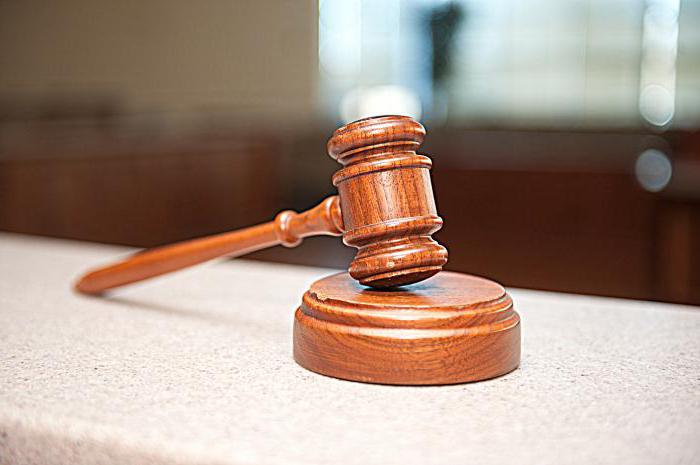A collective agreement or agreement is an official document adopted by an organization that governs labor and social relations between an employer and a work collective. Both parties need to know who at the enterprise can and should control the implementation of the terms of the collective agreement. If this work is carried out clearly and transparently, the risk of conflicts between the parties will be minimized.

Who should control the execution of the contract
Article 51 of the Labor Code of the Russian Federation says that control over the implementation of a collective agreement is carried out by the following persons:
- Parties to social partnership. That is, on the one hand, these are workers, and on the other, employers. Workers may be unions or workers specially selected for this purpose. On the part of the employer stands to supervise or his proxy.
- Labor authorities at the state or municipal level. Monitoring the implementation of the collective agreement is carried out by bodies of the level at which this document is concluded.
The procedure for monitoring the implementation of a collective agreement by the labor authority
Monitoring compliance with a local document starts from the moment it is registered with the authority regulating labor relations. They examine the presented collective agreement on the question of whether there are provisions in it that worsen the conditions for workers in comparison with the conditions of labor legislation. These items will be invalidated. Notifications will be sent to the organization and the state labor inspection about this.

After receiving this notice, the organization shall inform the persons to whom the illegal clauses of the collective document were previously applied. And then employees can appeal in court the fact of applying these conditions to them.
If in the future the organization will apply the invalid conditions of the collective agreement, this will entail the application of measures of responsibility to it.
Monitoring the implementation of collective bargaining agreements within the organization
Monitoring within the organization of the implementation of the collective agreement is carried out in the form established by the organization. Legislation does not establish a specific form of control. Paragraph 2 of Article 51 of the Labor Code of the Russian Federation indicates the obligation of the parties to provide each other and the labor body with information on the implementation of the collective agreement no later than one month after the request.
In practice, it turned out that the action of the collective agreement and the control of its implementation are reflected in the report, which is presented at the general meeting of employees of the organization. It is also posted on the Internet, in the media or in the organization itself for free access and review.
The form of the report and its content are determined by the organization itself. It can also be presented in free form. The head of the union signs this document.
Control committee
For the effective organization of the process, it is advisable to create a commission to monitor the implementation of the collective agreement. The purpose of her activities is to monitor the implementation of the collective agreement; informing the parties about the progress of affairs; periodically summarizing the results that are proposed for consideration at trade union meetings; taking measures to end the violation of the collective agreement.

Most often, the initiator of the creation of such a commission is the union. Its composition is selected by the trade union committee from among the members of the trade union. The number of members in a commission is determined by the size of the organization and the amount of work. The head of the commission selects the chairman of the trade union committee.
Monitoring the implementation of the collective agreement is carried out by the commission in the following ways:
- personal visit, workaround;
- receiving information or written documents about cases requiring control, and taking appropriate measures.
The Commission in the course of its work prepares materials for consideration by the trade union in the following areas:
- Recommendations to the leader on elimination of discovered violations of the collective agreement. If necessary, this documentation can be sent to labor authorities or law enforcement agencies.
- Consideration of draft orders that affect the labor and economic interests of workers. This may be a suspension, liquidation or reorganization of production, which will entail a reduction in workers or worsening conditions of their work.
- Termination with employees of an employment contract or contract.
- Filing lawsuits against workers.
- Preparation and conduct of a dialogue between the employer and government bodies.
Responsibility for non-compliance with the collective agreement
Responsibility and control over the implementation of the collective agreement are established by the legislation of the federal or regional level. The Code of Administrative Offenses in Article 5.31 establishes the administrative liability of the employer for violation of the collective agreement. The fine is 30-50 minimum wages.

If the employee has violated the collective agreement, then such punishment does not apply to him.
In the process of monitoring the implementation of the collective agreement, the liability of the employer side in the administrative plan occurs if he:
- evades participation in negotiations in order to conclude a collective agreement, violates the terms of negotiations;
- does not provide the necessary data for collective bargaining or monitoring the implementation of a collective agreement;
- refuses to conclude a collective agreement without reason;
- violates or does not fulfill its conditions;
- does not accept demands from employees and does not want to participate in the reconciliation procedure.
For all these violations, the Code of Administrative Offenses imposes an administrative fine as a punishment.
Why do you need a collective agreement at the enterprise
The purpose of this local regulatory document is to approve the rights and guarantees of the organization’s employees, additional to the legislation, taking into account the specifics of its work. The aim is also the economic and social protection of workers through an appropriate level of wages, full and effective employment, safe working conditions, profitable and productive work of the organization as a whole.
Principles and grounds on which a collective agreement is concluded:
- equality of two parties;
- compliance with state law;
- prescribed obligations voluntary for both parties;
- the possibility of real implementation of the obligations undertaken;
- the responsibility of the parties for the obligations of the collective agreement;
- contact between the parties and mutual response to changes in the situation.
What can and should regulate the collective agreement
The document may contain sections affecting absolutely all the interests and rights of employees of this organization:
- remuneration - its form, size, types and conditions of bonuses, various benefits, compensation; how wages are regulated in connection with rising prices, increasing inflation, as well as the dependence of wages on economic and other performance indicators of the organization;
- employment system at the enterprise, the possibility of retraining, conditions for dismissal of employees;
- length of time for work and rest, vacation system;
- points on labor protection, ensuring safe working conditions;
- obligations for certain categories of workers, for example, women, youth, veterans, young professionals, people with disabilities, families with children, etc .;
- responsibility of employees and employer;
- protecting the health of workers in the enterprise;
- how should work be carried out when monitoring the implementation of a collective agreement.
The "lifespan" of the collective agreement
Both parties themselves have the right to decide for how long to conclude a collective agreement. The main requirement is that this period be at least one year and no more than three years.
In order for the rights and guarantees of workers to be fully respected, it is necessary to begin work on a new collective agreement in advance. It must be agreed upon and approved before the expiration date of the old document.
The essence of the collective agreement
The concept of an employment agreement is somewhat different from a collective agreement. The agreement is a legal act that is concluded between workers and employers to establish general principles for regulating labor, social and related relations. The agreement can be concluded starting from the level of the administrative district and ending with the federal one. Also, such a document may be of a sectoral nature.

The agreement may contain the following sections:
- salary;
- the order of working hours and rest;
- occupational Safety and Health;
- rules of social partnership.
In accordance with the scope of regulation, all agreements can be divided into the following types:
- general - at the federal level;
- regional - within a certain subject of Russia;
- industry - in certain areas of production;
- territorial - within the municipality.
Parties to different types of agreements
The composition of the parties to the agreement depends on the level at which the document is accepted. Types of collective agreements and their parties:
- general - the national association of employers, the government of Russia, the state association of trade unions;
- regional - trade unions, regional associations of employers, executive authorities of a specific subject of the Russian Federation;
- industry - trade unions, associations of employers, labor authorities of a particular subject of Russia;
- territorial - trade unions, associations of employers of a given locality, local authorities.
How an employer can cheat an employee
A collective agreement or agreement protects the rights of workers, gives them certain guarantees. This document acts as the constitution of the enterprise. Since the control over the implementation of the collective agreement is carried out by both parties - both the employer and the employee? then the latter is documented protected.
But it is also important that the employee takes care of himself, that he can stand up for himself and achieve what he is entitled to.
Here are the most common violations by employers:
- work stipulated by an employment contract is not provided;
- imputation of duties and work not provided for by the concluded labor contract;
- illegal change in the date and form of payment of salaries;
- illegal deduction of part of wages;
- inappropriate organization of the labor process;
- illegal use of rest time in order to continue the work process;
- refusal to grant holidays;
- refusal to pay overtime hours.
Any violation of a collective or employment contract is considered illegal.
Where to complain

With a complaint about the illegal actions of the employer, you can go to different authorities:
- labor inspection;
- police;
- court;
- tax;
- prosecutor's office.
If the control over the implementation of the collective agreement (agreement) is carried out by the labor inspectorate, then it has the right to consider any disputes related to the implementation of labor and related processes. The competence of this authorized body is not limited. If necessary, the labor inspectorate may also involve other bodies in the proceedings.
You can go to the prosecutor’s office in case of a gross violation of the law by the employer.
You can sue if the above authorities have not resolved the employee’s problem.
Many workers hesitate to confront the illegal actions of the employer, fearing to be fired. By law, you can file an anonymous complaint with inspection authorities. But if the problem is small, it does not concern a large number of workers, then most likely no answer will be given. If the anonymous complaint contains facts of a gross violation of the law that infringes on the rights of a large number of employees, you can wait for an inspection by law enforcement agencies.
The power of knowledge
Monitoring the implementation of the collective agreement is carried out both by the employees themselves and by the employer. Thus, if you yourself are interested in the collective agreement of your company, you will know your rights and guarantees. Then you can safely defend them.
